when she said ‘study hard, so you don’t have to work hard’
When I was in school back in Canada a long time ago – walking five miles to school in the snow (in bare feet), taking notes with a sharp stick on clay tablet, and watching in amazement as our neighbour Noah built that crazy boat, I had a very wise English teacher, Miss Smith – a small and enthusiastic individual, passionate about the written word.
Miss Smith said to us more than once to ‘study hard and get a good education, so you don’t have to work so hard later’. Wise words, or so it seemed, as what she meant was if we studied hard and got a good university education we’d be the engineers designing the railroads spreading out across the Canadian prairies, not the labourers laying the tracks.
We’d be managing things in the new horseless carriage factories, not assembly-line drones. We’d be flying the intercontinental airbuses to exotic destinations, not waiting in the air-bridge to quickly clean the plane as it changed passengers and refuelled.
So most of us studied hard and got university degrees, went on to solid jobs and became competent managers, and some of us even went back to school to do a Master’s degree or even a PhD. Of course some of our fellow students didn’t study hard – thank goodness otherwise there’d be no railroads, no Ford cars and trucks, and we’d all be flying in messy planes – I guess.
But there was another group of people who didn’t study hard either, and it’s only later we learnt they might have had the right idea – either by clever design or dumb luck. What they did instead of studying harder, was they studied smarter!
I think Miss Smith might have advised us better if she’d said ‘study smarter and get a great education, and you’ll never have to work for a living’.
And of course that’s what a few now very successful people did. Think Sir Richard Branson, Ralph Lauren, Bill Gates, Steve Jobs, Kerry Packer, Lindsay Fox, Dr William (Billy) Connolly, Larry Ellison, Michael Dell, Stanley Ho, Thomas Edison, Princess Diana, Ben Franklin, YC Wang, Albert Einstein, John D. Rockefeller, Walt Disney, the Governator, Colonel Harland Sanders, Sir Elton John, Ray Kroc, and Mark Zuckerberg, and many more.
What these people understood, intuitively or otherwise, was that there are lots of ways to be ‘smart’ and lots of ways to ‘study’, and they also know that work isn’t work, when you love what you do! We know now that we are past the Information Age and well into the Age of Intelligence, a term coined by our friend and mentor Tony Buzan.
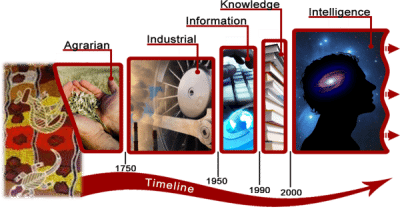
In this age of intelligence we need to develop the manager of the manager of information – that is the amazing brain. We want to understand how it works, and how to develop its awesome power.
And we need to go beyond the development of the traditional intelligences, we need to be able to identify, encourage and develop our multiple intelligences.
Thanks to Tony Buzan, Howard Gardner and others we now understand there are multiple intelligences, and it seems clear the schooling system doesn’t address the development of these.
And it is in some of these non-traditional intelligences that almost all these successful ‘education system drop-outs’ excelled.
“The fact is that given the challenges we face, education doesn’t need to be reformed — it needs to be transformed. The key to this transformation is not to standardize education, but to personalize it, to build achievement on discovering the individual talents of each child, to put students in an environment where they want to learn and where they can naturally discover their true passions.” ― Ken Robinson
“The whole educational and professional training system is a very elaborate filter, which just weeds out people who are too independent, and who think for themselves, and who don’t know how to be submissive, and so on — because they’re dysfunctional to the institutions.” ― Noam Chomsky
“ Mind Map of Tony Buzan’s Multiple Intelligences What they also did was study and study hard, but not only in traditional ways or in standard classrooms. Instead they studied things that interested them, mattered to them, and challenged them. Walt Disney traveled Europe studying design, characters and places to create his own world that he could share with us. Zuckerberg studied the interaction of people and how they might connect online, and Billy Connolly and many other comedians have studied the world around them to show us the funny side. And there are many less well known, but very successful people, demonstrating the same principles of study to develop their unique intelligence. I’ve recently had the opportunity to re-connect with a friend I first met in Egypt in 2008, Rick Otton – a genius in creative problem solving, a passion of my own as everyone knows. On the surface Rick would appear to be in the Investment Property business, buying and selling properties – even his company name WeBuyHouses says that. I when I first met him, that was the impression I had, that he was a very clever and creative property investor, who was also sharing his very successful methods with others. But when I read his recent book ‘How to Buy a House for a Dollar’ I realized just how much I and many others under-estimated him. What the book clearly demonstrates is that Rick is a creative problem solving – if someone is having difficulty selling or seeking to buy a house but doesn’t meet the bank’s strict requirements, his role is to figure out the best way for them to do that. Using a wide range of non-standard, but very elegant and people friendly methods he helps sellers get the best possible price for their house in a few days, rather than the months it takes real estate agents. And if a family is having trouble getting a bank loan, for any reason, Rick will figure a way for them to enter the property game right away – even to the pint of being able to buy a house for just one dollar. Now as you might expect, over the last 15 years he’s been doing this many people have constantly told Rick what he’s doing can’t be done – so he does it anyway, legally and with so much fun as he helps people solve their problems. And the beauty of it all is that property is just the medium Rick uses – it was how he started, but his creativity can be applied to almost any buying and selling process. And for the last ten years he’s been showing others how to do it as well. In fact he shares much of his experience and some of his proven methods people in his book and at free seminars he runs around Australia, in the UK and in the United States. If you’re into property, or would like to be, you must read Rick’s book. His mission is to help 10,000 Australians to buy a house for one dollar. Another creative genius we know a lot about is our friend Tony Buzan, who you’ve heard us talk about a lot. Author of over 100 books, inventor of Mind Mapping, memory master, and creator of iMindMap Mind Mapping software – itself a tool for creativity. While Tony has a university degree he chose early in life to focus less on academic achievement and to instead commit himself 100% to Global Mental Literacy – that is the vision of everyone understanding how their amazing brain works, and how to use it better. And from his first still best-selling books published 40 years ago The Speed Reading Book, The Memory Book, and The Mind Map Book to his books for children such as Brain Training for Kids, written with our own Jennifer Goddard, to a range of collaborations on all sorts of subject areas, Tony’s work has and continues to change the world. And do you think Rick, Tony or any of the very successful I’ve named in this article get up every day to go to ‘work’? Not likely, and nor do we. Yes we get up and work in our businesses, deliver our workshops, write our articles and books, work with clients and colleagues, and we love doing it. It isn’t work, it’s what we do to make a difference. I started off by saying that maybe my old teacher Miss Smith had it almost right when she said we should ‘study hard now and get a good education, so you don’t have to work so hard later’, and of course she meant well. The reality is that we must all learn to study smarter, like the people I’ve talked about here. Everyone needs to understand their multiple intelligences, how their brain works, and how to improve their thinking and build on their unique intelligences. And it can be done easily, by simply putting in some effort. Watch TED Talks – fantastic 20 minute presentations by the brightest people on the world – and all free to download to your mobile device. Connect with people, connect with me on LinkedIn and get involved in global groups where you can learn from other enthusiasts like yourself. And if you do want to go back to formal study, consider how you’ll make the most of the time spent doing it – begin with the end in mind, and make it so (to quote some great geniuses real and fictional). And of course you should also have a look at the public programs we have available. “Our task is to educate their (our students) whole being so they can face the future. We may not see the future, but they will and our job is to help them make something of it.” ― Ken Robinson “It gave a tremendous level of self-confidence, that through exploration and learning one could understand seemingly very complex things in one’s environment.” – Steve Jobs “Through learning we re-create ourselves. Through learning we become able to do something we never were able to do. Through learning we re-perceive the world and our relationship to it. Through learning we extend our capacity to create, to be part of the generative process of life” ― Peter Senge All the very best with whatever you study, and whatever you choose to do and be in life.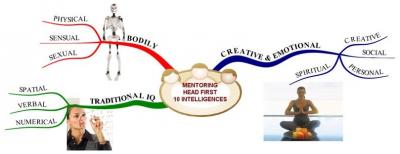
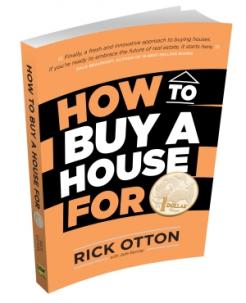
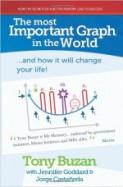 Read all sorts of books – start with Tony Buzan and Rick Otton’s to see what is possible, then explore widely. Definitely read The Most Important Graph in the World by Tony Buzan and Jennifer Goddard, and their book Brain Training for Kids is great for kids 6-10.
Read all sorts of books – start with Tony Buzan and Rick Otton’s to see what is possible, then explore widely. Definitely read The Most Important Graph in the World by Tony Buzan and Jennifer Goddard, and their book Brain Training for Kids is great for kids 6-10.


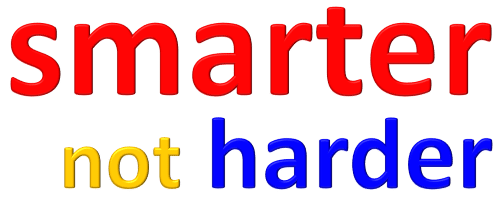


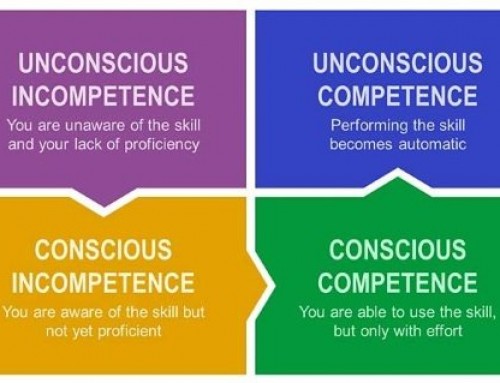
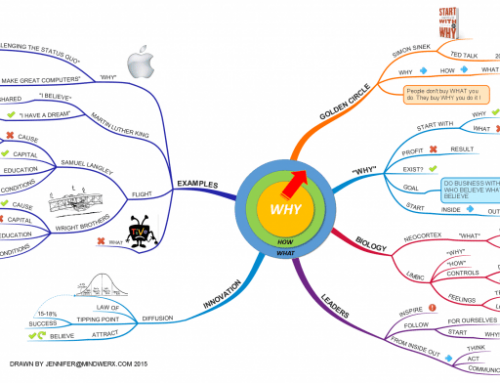
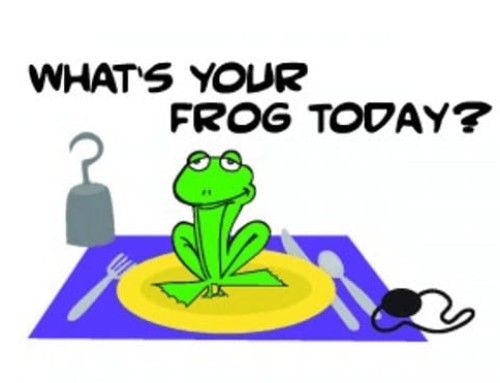
Leave A Comment
You must be logged in to post a comment.